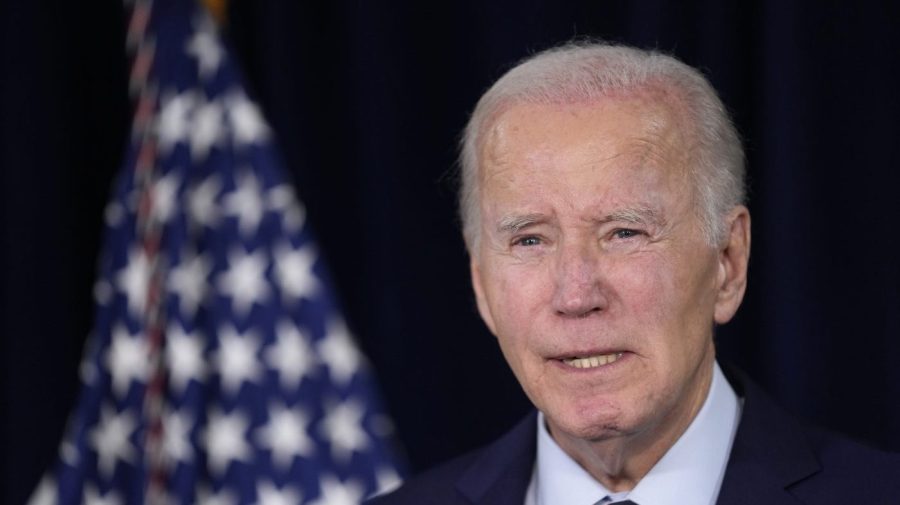
The Biden administration announced Friday it was imposing what it billed as the most significant sanctions to date on the Russian energy sector, targeting Moscow’s oil and liquified natural gas (LNG) exports just weeks before leaving office.
Senior administration officials said on a call with reporters that they expected the new sanctions to cost Russia up to billions of dollars per month in revenue, further hampering its ability to fund its war in Ukraine.
The Treasury Department will impose sanctions against two of Russia’s largest oil firms and impose sanctions on 183 oil vessels that officials said are part of a “shadow fleet” of ships to transport Russian oil, forcing Moscow to find alternative ships to deliver oil to alternative markets.
The State Department will impose sanctions on nearly 80 entities and individuals involved in the exporting of liquified natural gas, including those providing support to a flagship new LNG project, a senior administration official said.
Officials said the timing of the sanctions hitting Russia’s energy sector was a result of oil markets being in a better place than they were earlier in the war in Ukraine, and the U.S. economy being in a stronger position and thus able to withstand any ripple effects.
One official said the new set of sanctions will “further force the Kremlin to make hard decisions” between funding its war effort and addressing the health of Russia’s economy.
The United Kingdom is expected to announce complementary actions of its own in coordination with the U.S., officials said.
President Biden has made rallying support for Ukraine a central component of his foreign policy and legacy while in office, and Friday’s announcement serves as a final attempt to boost Ukraine and hinder Russia on his way out of office.
The Biden administration has announced numerous sanctions on various sectors of Russia’s economy, as well as on allies of Russian President Vladimir Putin, in an attempt to make it an economic pariah and cut off sources of funding for its war machine.
The White House has also approved final rounds of military assistance for Ukraine, seeking to strengthen its hand on the battlefield.
“We believe these sanctions, plus the recent steps we’ve taken to improve Ukraine’s staying power on the battlefield…provide the next administration a considerable boost to their and Ukraine’s leverage,” one senior administration official said.
But it’s unclear if the incoming Trump administration will leave the sanctions in place, as President-elect Trump and Vice President-elect JD Vance (R-Ohio) have repeatedly expressed skepticism about the Biden White House’s approach to the war in Ukraine. Vance in particular has questioned the effectiveness of sanctions to deter Russia, which invaded Ukraine in early 2022.
Trump has said since winning November’s election that he wanted to bring Russia and Ukraine to the negotiating table to bring an end to the fighting. But he has also acknowledged that ending the war may be difficult, a shift from the campaign trail when he pledged to stop the fighting before he took the oath of office.












